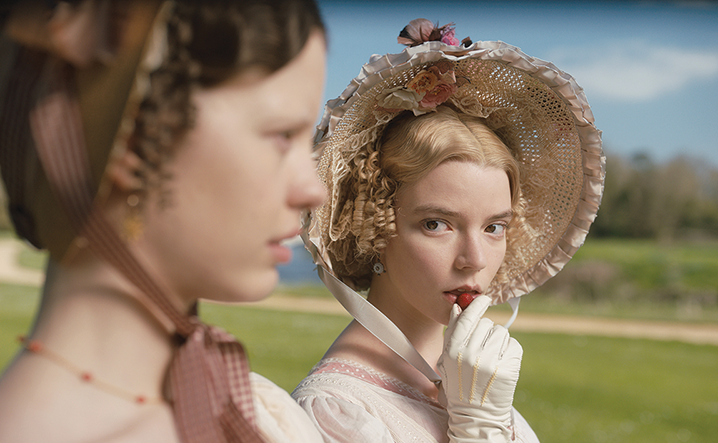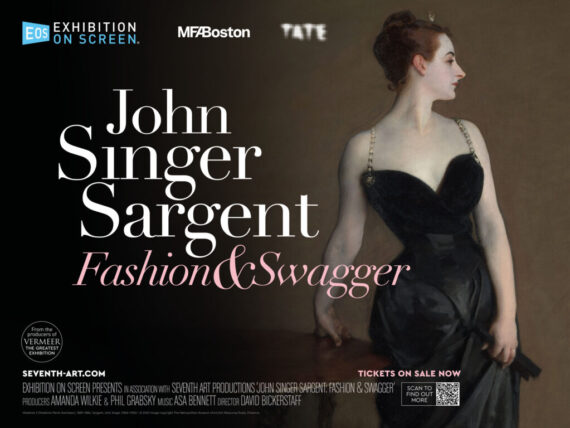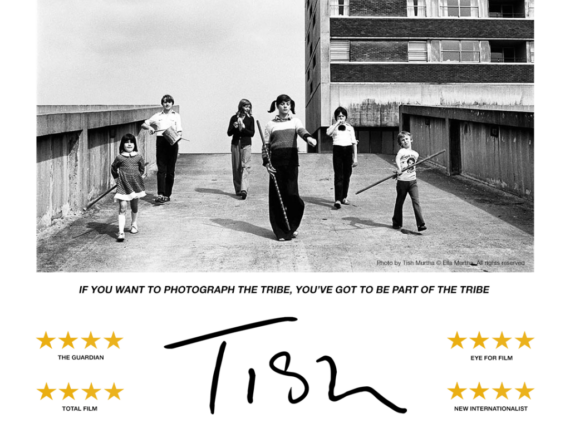Helen Tope reviews Emma, showing in our cinema from Friday 13th to Thursday 19th March. Advance booking recommended.
Rich, clever and handsome, Emma Woodhouse is Jane Austen’s most challenging heroine. Indulged by her father, and the social lynchpin of her town, Highbury, Miss Woodhouse is – safe to say – living her best life.
In her feature debut, director Autumn de Wilde takes a classic approach to retelling Emma’s story. Enabled by a script from novelist Eleanor Catton, this Emma is the most recognisably true to form since Douglas McGrath’s 1996 film, starring Gwyneth Paltrow.
Played by Anya Taylor-Joy, this Emma sees the marriage of her former tutor Mrs Weston as a personal victory. A lucky match made by Woodhouse herself, she fancies another spin of the wheel. Becoming friends with a girl from the nearby day school, Harriet Smith (Mia Goth), sparks Emma’s curiosity. Not quite as pretty as Emma, nor as sharp – Harriet is immediately flattered by Miss Woodhouse’s interest.
A girl living on charity, Harriet Smith’s origins are wholly open to debate. Despite this, Emma sees the girl’s attachment to local farmer, Robert Martin, as entirely unsuitable. Harriet can do much better.
As a new curate joins the parish, Emma spots an opportunity. A deliciously vulpine Mr Elton (Josh O’Connor) quite clearly prefers the minted Miss Woodhouse – but Emma sees his fawning attention as proof that he is falling in love with Harriet. Being warned off this project by Mrs Weston (Gemma Whelan), and family friend, Mr Knighley (Johnny Flynn), Emma digs her heels in. She’s got this game figured out, down to the last play.
Against this, a subplot emerges among Highbury’s elite. Miss Bates (Miranda Hart) introduces her niece, Jane Fairfax, to the town’s close-knit group. Played by Amber Anderson, the orphaned Jane is Harriet’s antithesis. Stunning, stylish and uber-talented, her arrival unsettles Emma. As Mr Weston’s son, Frank Churchill – a decidedly metropolitan Callum Turner – joins the mix, Emma finds her head being turned by Churchill’s easy manners.
This film has been described as ‘chocolate-box’ Austen – and true enough, no soup tureen is left unexamined. But by dealing in surfaces, de Wilde reminds us that, for these people, expressing each and every thought had consequences. During a picnic, the Highbury gang sit in the afternoon sun, and Frank Churchill suggests a game. To amuse Miss Woodhouse, the participant must say either one thing exceedingly clever, two moderately clever things or three very dull. Miss Bates (Miranda Hart) makes a self-deprecating remark. Emma, before she can stop herself, bites back. The trouble will be limiting herself to three.
In literature, there are few moments bitchier than this, and the film doesn’t shy away from its emotional impact. Playing Miss Bates with a lovely light exuberance, Miranda let us see her character smarting from the blow. While this moment is normally a few seconds on film, here de Wilde lingers. We feel the discomfort of a good woman shamed in front of her friends. Emma knows her mistake at once and is paralysed into silence. In a performance that really tests the audience’s loyalty to the character, Taylor-Joy isn’t afraid to let us see Emma in less than glowing terms. As Mr Knightley chastises her (to be fair, nothing she isn’t already telling herself), Emma’s cruelty has not only spoiled the day, it threatens the delicate web of friendship around her.
Emma may be a comedy of errors, but there are times where the humour runs dark. We laugh at Bill Nighy’s hypochondriac Mr Woodhouse, but his peevish, self-centred behaviour risks his daughter’s chance of happiness. Austen has little patience for imagined illness (see Mary Musgrove in Persuasion; Mrs Bennett in Pride and Prejudice) and Mr Woodhouse, far from being a figure of fun, has the potential here to upend the entire narrative. In nearly halting Emma’s love story before it has a chance to start, Nighy plays on the melancholy of a widower – in this film, it is loneliness, rather than selfishness, that compels him to act the way he does.
We also see the fallout of Emma’s catastrophic misfires as matchmaker. Harriet Smith is batted away from a perfectly respectable Robert Martin to a clearly indifferent Mr Elton. The fun of Emma is observing just how wide of the mark she is, although these laughs come at Harriet’s expense. The recipient of a middling education, Harriet lacks the confidence to make her own decisions, and Emma’s ability to steamroll through any situation jeopardises Harriet’s future. Goth plays Harriet with a great deal of affection – so much so that you cannot help but warm to Harriet’s naivety and charm – and it makes Mr Elton’s refusal of her all the more damning.
In looking at the surface of Regency life, de Wilde’s focus on costume is hardly surprising. Designed by Alexandra Byrne, Anya Taylor-Joy’s wardrobe is the stuff of dreams. A girl with budget to burn, Emma Woodhouse wears her wealth on her sleeve. From the muslin gowns with high, frilled collars to a fan-backed yellow coat, Byrne uses costume, not just as decoration, but to illustrate how fashion serves the hierarchy of Austen’s characters.
While Miss Bates wears a hodge-podge of garments from better times, a casual glance at Jane Fairfax and Emma Woodhouse would assume them both to be women of means and style. However, the differences are all in the detail. Emma, though wealthy, lives in the provinces. Her gowns are beautifully embroidered, decorated with a clearly substantial jewellery collection. Jane Fairfax, who is more travelled and, by implication, a more worldly catch, has a pared-down sartorial language. The lines are crisp and clean, just like Emma’s, but Jane is accessorised with delicate necklaces, barely-there touches that speak of someone who’s observed style at its cutting edge. Emma wears stunning clothes, but they are already out of date. Fashion has moved into a more austere age, which Emma has yet to discover. Highbury society would never know it, but Emma and Jane are aware of the power shift between them. Where accomplishment counts, Emma is not used to being bested, and it’s there, right down to the final stitch.
There are certainly Austen novels that ask for a little rule-breaking – Mansfield Park’s themes of adultery and slavery require a daring adaptation – but Emma is the most complete of Austen’s worlds. It is self-contained – almost sealed off from outside influence. Concerned with misdemeanours of the heart, Catton’s screenplay looks inward, emphasising the doubts, the near-misses. Even in this sunniest of Austen’s novels, not every character’s fate is a happy one. Jane Fairfax makes a marriage of convenience; Miss Bates will sink into genteel poverty.
Emma might seem to take the path of least resistance, but with acerbic notes dotted throughout, Autumn de Wilde’s film exposes the darker side of Emma, right from the start. A spoilt, selfish girl; a preying fortune-hunter, a father reluctant to let his children grow up. Austen’s comedy celebrates the fault lines in Emma’s perfect world – and dares us not to recognise a little of ourselves in her reflection.
A film boasting a great cast, a good story and a hefty dose of Regency glamour. Even Miss Woodhouse would approve.
Helen Tope









Comments
No comment yet.